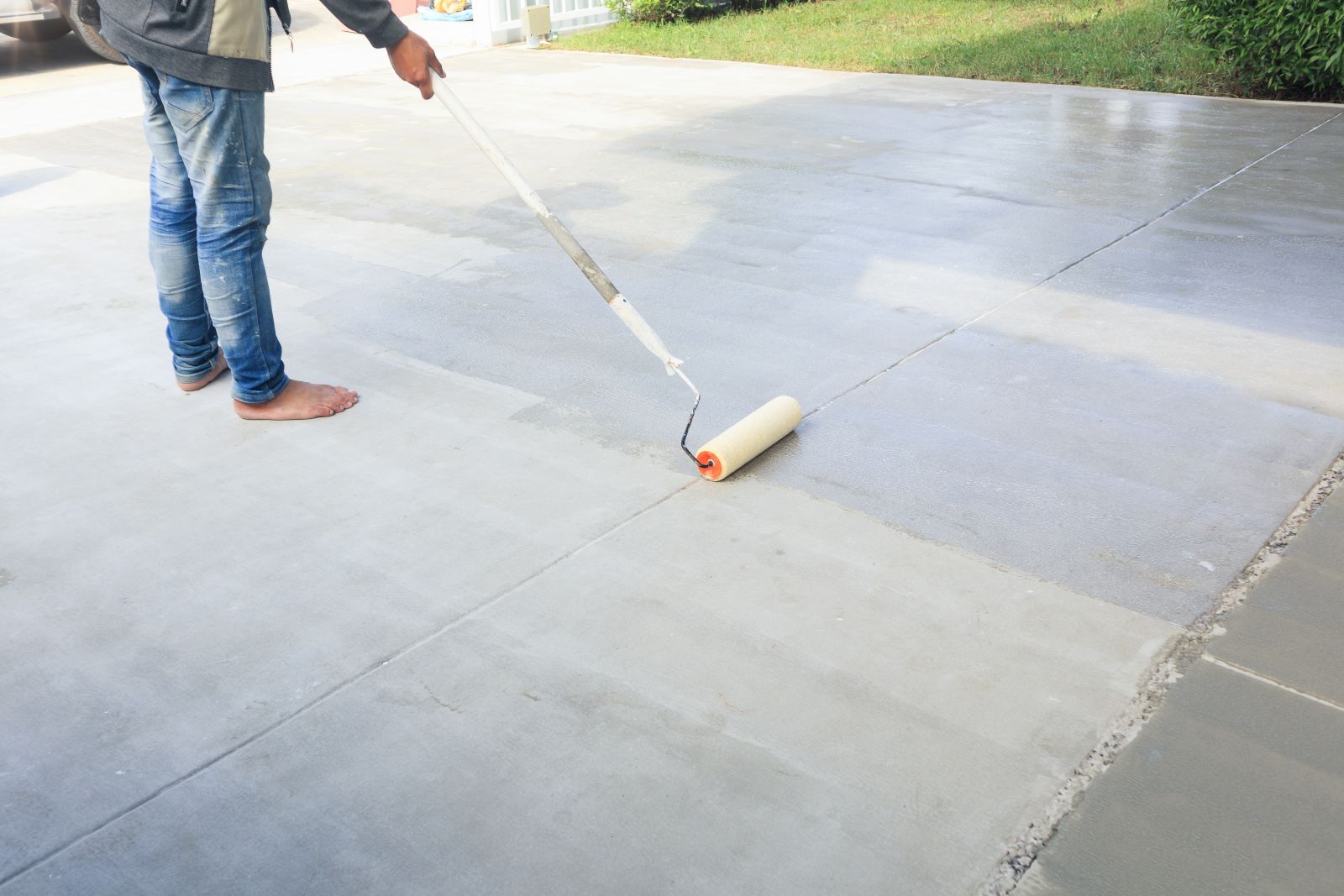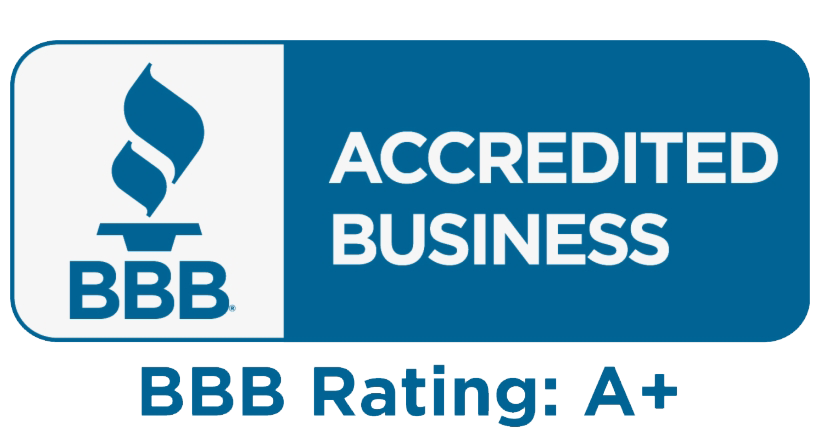Blog

What is the Best Commercial Roofing Material? Exploring Sealcoating, Basement Remodeling, and Asphalt Maintenance
If you’ve ever wondered, Does sealcoating extend the life of a driveway?, you’re not alone. Maintaining an asphalt driveway can seem like a daunting task, but sealcoating is often touted as a simple solution for protecting your investment. But is it really necessary, and does it live up to the claims?
This guide explores not only sealcoating benefits but also how projects like basement remodeling can work hand-in-hand with outdoor improvements to boost your property’s value and functionality. By the end, you’ll have all the information you need to make informed decisions about your home and commercial upgrades.
Basement Remodeling: Upgrade Your Interior While Maintaining Your Exterior
When working on exterior upgrades like driveway sealcoating, it’s also a good time to think about enhancing your indoor spaces with basement remodeling. Transforming your basement can create additional living or recreational space while boosting your property’s overall value.
Imagine pairing a polished, newly sealcoated driveway with a remodeled basement that serves as a home office, gym, or entertainment area. Together, these projects ensure your home is functional, stylish, and ready for any occasion.
What is Sealcoating?
Sealcoating is the process of applying a protective layer to the surface of an asphalt driveway. This sealant acts as a barrier between the asphalt and elements like water, UV rays, oil, and chemicals, all of which can cause significant damage over time.
Sealcoating involves applying a mixture of bituminous-based products, along with additives, to fill surface voids and create a smooth, water-resistant layer. It's not meant to repair significant cracks or damage, but it does help protect the surface from further deterioration.
How Does Sealcoating Work?
Sealcoating works by sealing the tiny cracks and porous surface of asphalt, preventing moisture from seeping in and causing bigger problems like potholes or cracks. It also helps to:
- Shield against UV rays: The sun’s UV rays can cause asphalt to become brittle over time, leading to cracking. Sealcoating provides a protective layer that absorbs UV light and prevents the asphalt from oxidizing.
- Protect against water damage: Water is one of the main culprits behind asphalt damage. Without proper protection, water can seep into small cracks, freeze, expand, and cause the asphalt to crack further.
- Prevent chemical damage: Oil, gasoline, and other chemicals can weaken asphalt by breaking down the binder that holds the aggregate together. Sealcoating creates a barrier that reduces the damage from these substances.
Does Sealcoating Extend the Life of a Driveway?
The short answer is yes, sealcoating can extend the life of your driveway. Regularly applying a sealcoat can protect your asphalt from the elements, helping it last longer and look better over time. But let’s break down how sealcoating benefits your driveway and what the research says.
1. Protection from Weather and Water Damage
One of the biggest enemies of asphalt driveways is water. Over time, rain and snow can seep into small cracks in the surface, causing those cracks to expand and lead to larger issues like potholes. Sealcoating fills in these small cracks and creates a waterproof barrier, keeping water out.
Real-Life Example: A homeowner I know noticed small cracks forming on their driveway after several winters. After sealcoating the driveway, they observed fewer issues related to water damage, and their driveway remained in much better condition, even after heavy snow seasons.
2. UV Ray Protection
UV rays from the sun can cause asphalt to oxidize, leading to a brittle and fragile surface. Over time, this can cause cracks and chips. Sealcoating adds a protective layer that reflects UV rays, preserving the integrity of the asphalt beneath.
3. Prevention of Chemical Damage
Oil and gasoline spills from vehicles can weaken asphalt by dissolving the binding agents that hold it together. Sealcoating creates a protective barrier that reduces the risk of these chemicals causing significant damage.
Expert Insight: “Sealcoating is essential for maintaining the integrity of asphalt,” says Sarah Miller, a certified asphalt contractor. “It’s not just about looks—it’s about preserving the strength of the surface and preventing chemical deterioration over time.”
How Often Should You Sealcoat a Driveway?
Most experts recommend applying driveway sealcoating every 2 to 3 years. However, the frequency depends on several factors, including the condition of your driveway, the climate where you live, and the amount of traffic your driveway sees.
1. Climate Considerations
If you live in a region with harsh winters, where snow and ice are common, your driveway may require more frequent sealcoating to protect against freeze-thaw cycles. Similarly, areas with intense heat and sun exposure may need more frequent sealing to protect against UV damage.
2. Driveway Condition
A new driveway typically doesn’t need sealcoating for the first 1 to 2 years. After that, regular maintenance is key. If your driveway is already showing signs of wear—such as cracking, fading, or small potholes—it may be time to apply a sealcoat.
3. Traffic and Use
Driveways that see a lot of traffic, heavy vehicles, or frequent chemical exposure may require more frequent sealing. If you use your driveway for parking multiple cars or heavy equipment, sealcoating every 2 years is a good rule of thumb.
The Benefits of Sealcoating Beyond Protection
While the primary goal of sealcoating is to extend the life of your driveway, it also offers several additional benefits that enhance both the aesthetics and functionality of your asphalt.
1. Improves Curb Appeal
A freshly sealcoated driveway looks new and well-maintained. The dark, smooth finish of the sealcoat provides an instant facelift to your property, boosting curb appeal.
Personal Experience: After having my driveway sealcoated, I noticed an immediate improvement in how the entire exterior of my home looked. The deep black surface made my landscaping stand out, and the driveway looked clean and polished.
2. Saves Money Over Time
Regular sealcoating can prevent more costly repairs down the line, such as filling potholes or replacing large sections of damaged asphalt. Sealcoating is a relatively low-cost maintenance procedure that can extend the lifespan of your driveway by 10 to 15 years.
3. Easier to Clean and Maintain
Sealcoating creates a smooth, even surface that makes it easier to clean and maintain your driveway. Leaves, dirt, and debris are less likely to stick to the surface, and spills from oil or other chemicals are easier to wipe off.
How Much Does Driveway Sealcoating Cost?
The cost of driveway sealcoating varies based on the size of the driveway, local labor rates, and the materials used. On average, homeowners can expect to pay between $0.15 to $0.30 per square foot for professional sealcoating.
For a standard 1,000-square-foot driveway, this translates to a cost of $150 to $300. Keep in mind that prices may be higher in areas with a higher cost of living or where materials are more expensive.
DIY Sealcoating vs. Hiring a Professional
Some homeowners choose to sealcoat their driveways themselves to save money, but there are several reasons to consider hiring a professional.
- Experience and Quality: Professionals know how to properly apply the sealcoat for a long-lasting, even finish. They also have access to higher-quality materials.
- Time and Effort: DIY sealcoating can be a labor-intensive process, requiring several hours of work, preparation, and cleanup. Hiring a professional saves you time and effort.
- Proper Application: If sealcoating is not applied correctly, it can lead to uneven coverage or early wear. Professionals use specialized tools and techniques to ensure the job is done right.
Expert Insight: “While DIY sealcoating can work for smaller driveways, hiring a professional ensures better materials and application techniques. You’re investing in the longevity of your asphalt,” says Jason Taylor, an asphalt maintenance expert with over 20 years of experience.
Are There Any Downsides to Sealcoating?
While sealcoating offers numerous benefits, it’s important to be aware of its limitations.
1. Doesn’t Repair Major Damage
Sealcoating is designed to protect and maintain asphalt, but it won’t fix significant issues like large cracks, potholes, or structural damage. These issues should be addressed before applying a sealcoat.
2. Short-Term Mess
Sealcoating requires time to cure, typically between 24 to 48 hours, depending on weather conditions. During this time, you won’t be able to use your driveway, and you’ll need to keep vehicles and foot traffic off the surface.
3. Regular Maintenance is Still Required
While sealcoating helps extend the life of your driveway, regular maintenance like crack filling and clearing debris is still necessary to ensure your asphalt remains in good condition.
Conclusion: Does Sealcoating Extend the Life of a Driveway?
So, does sealcoating extend the life of a driveway? Absolutely. Sealcoating is a crucial maintenance step that protects your asphalt from weather, chemicals, and everyday wear and tear. By regularly applying sealcoat—typically every 2 to 3 years—you can prevent costly repairs, improve the appearance of your driveway, and ultimately extend its lifespan by years.
While DIY sealcoating is an option for some, hiring a professional ensures the job is done properly, saving you time and providing a longer-lasting finish. If you’re ready to protect your driveway and preserve its durability, consider scheduling a sealcoating service with a trusted local professional today!
Blog Categories

Address
605 Hampton Park
Capitol Heights, MD 01234

Phone






